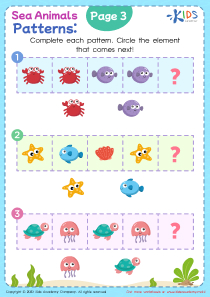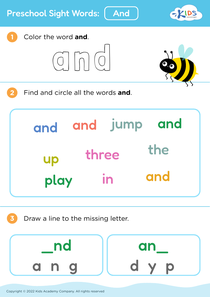Categorization skills Preschool Animals Worksheets
3 filtered results
-
From - To
Discover our Categorization Skills Preschool Animals Worksheets, expertly designed to help young learners develop vital categorization and classification skills. Through engaging, hands-on activities, preschoolers will explore diverse animal groups, learning to differentiate and sort by characteristics such as habitat, size, and features. These worksheets are perfect for fostering critical thinking, enhancing curiosity, and building a strong foundation in early science education. With colorful illustrations and interactive exercises, children will enjoy every moment of learning. Ideal for parents and educators looking to make learning fun and effective. Boost your child's cognitive development with our premier educational resources today!
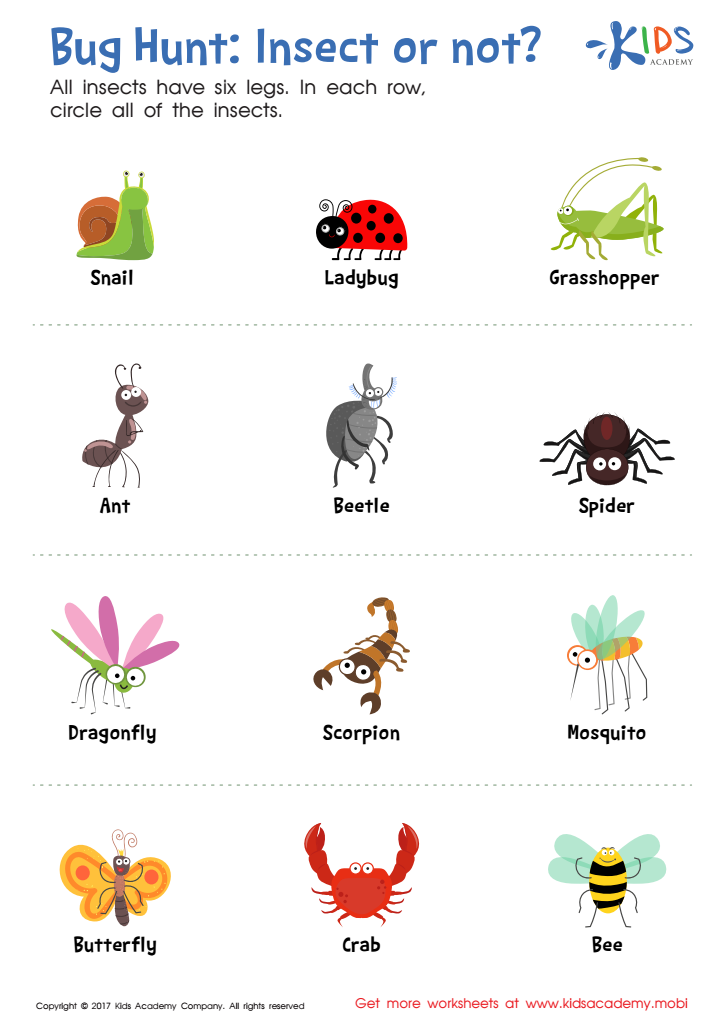

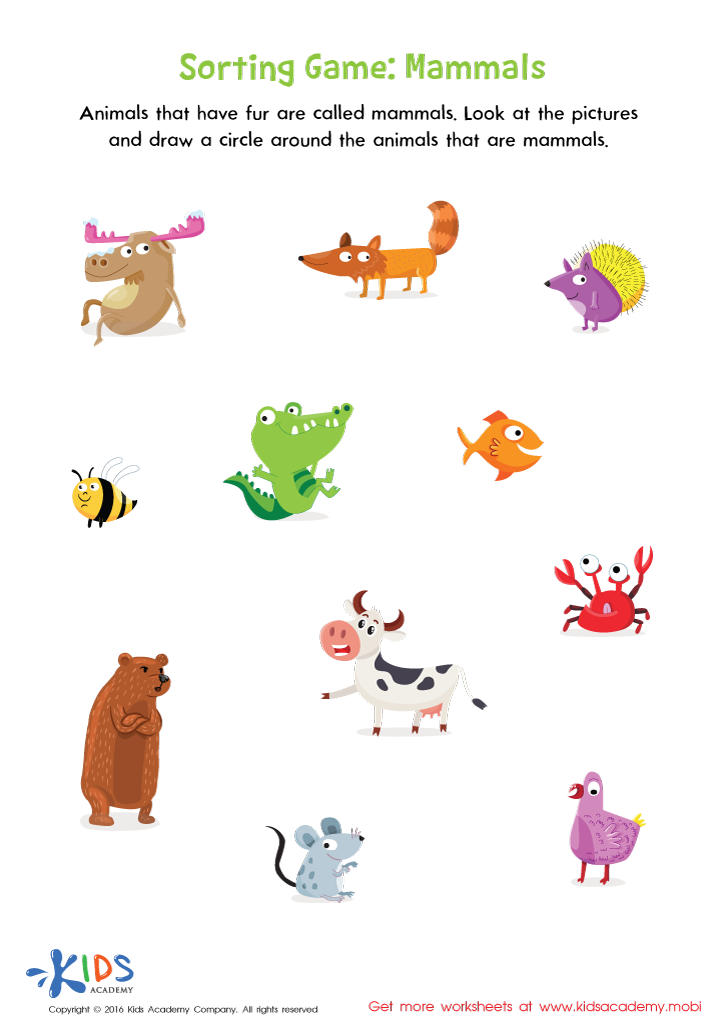

Mammals Sorting Worksheet
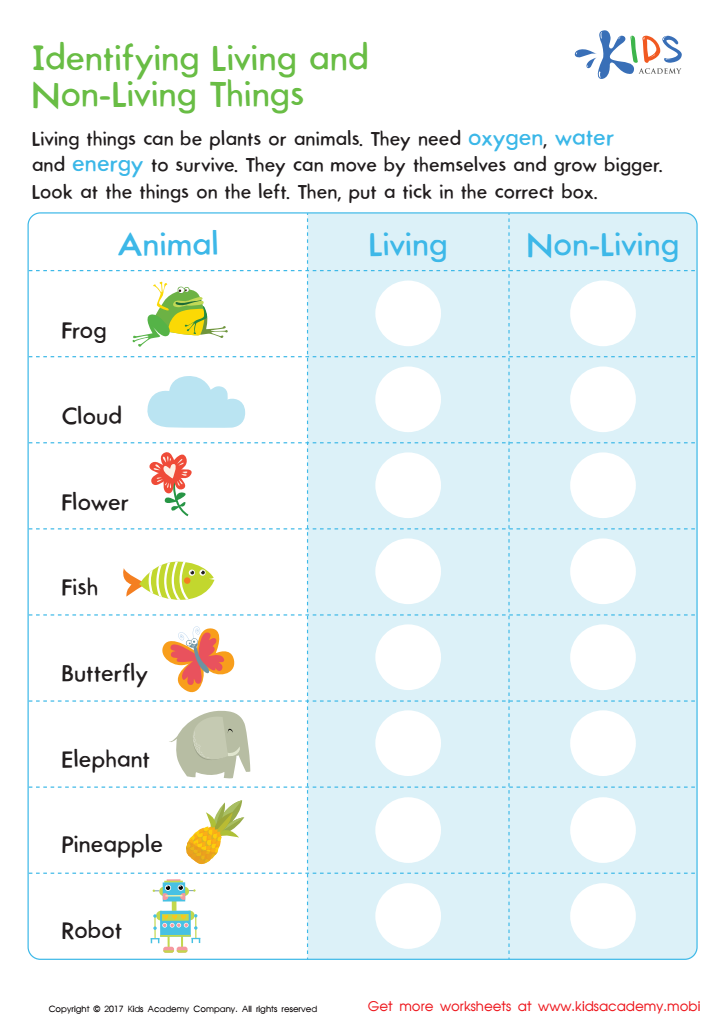

Identifying Living or Non–living Worksheet
Parents and teachers should care about categorization skills, particularly in preschool-aged children, because these skills are fundamental to cognitive development and learning. When children learn to categorize animals, they engage in processes that help them understand and organize the world around them. Sorting animals into groups based on characteristics like habitat, diet, or physical features encourages critical thinking and logical reasoning.
For instance, distinguishing between mammals, birds, reptiles, and amphibians helps children develop a framework for understanding biodiversity. This, in turn, enhances memory, as children are better able to remember facts that are categorized in a systematic way. Improved memory and understanding lead to stronger academic skills, which benefit overall school readiness.
Furthermore, categorization activities promote language development. Children expand their vocabulary as they learn the names of different animals and the specific terms related to those groups, such as "mammals" or "herbivores." These improved language skills aid in communication and social interactions.
Finally, engaging in categorization tasks nurtures a child's curiosity and love for learning. Making sense of one's environment through fun and interactive activities, like sorting plastic animal figures, fosters enthusiasm and positive attitudes towards education. Thus, investing time in developing categorization skills in preschool children lays a strong foundation for their future academic and personal success.

 Assign to My Students
Assign to My Students








